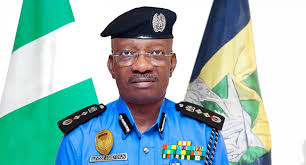The stakeholders spoke in seperate interviews with the News Agency of Nigeria (NAN) in Abuja, in reaction to voting by the 36 speakers of State Houses of Assembly for state police.
Mr Gad Peter, the Executive Director of Cleen Foundation, said voting by the speakers for state police was expected because most of them were answerable to their governors.
According to him, ideally, the speakers are supposed to subject this conversation to discussion in their various states before taking a unanimous decision on it.
“There ought to be an elaborate public hearing where people’s views will be heard to know whether to accept it or otherwise.
“However, state police cannot address the issue of insecurity in any state of the country; the governors must provide basic amenities and social justice for their people,” he said.
Peter urged the speakers and governors to work together to provide services for the people, adding that such would reduce crime and criminality.
He also said he was not sure many of the state governors would be able to manage state police effectively.
“Honestly, I don’t think many of the state governors will be able to manage state police effectively, especially in the area of funding.
“A number of the states are not paying salaries and you cannot have a state police without having a state prison because the federal government cannot feed the people sentenced by the state police.
“Several things must go into the planning; if you are in Lagos State and you are chasing criminals that run to Ogun, are you going to stay by the border and start calling the state police in Ogun to catch the criminals?
“So, several things need to be put in place, the technicalities, scope of work and others need to be settled so that we don’t start something we know will not work,” he said.
He further said the scope of work and guidelines must be spelt out to avoid unnecessary rivalry among security agencies as well as state and federal police.
“My understanding is that if we must have state police, we must have a highly mobile unit of Federal Police.
“The idea is that at any point that the state police is not functioning well or overpowered, the Federal Police can step in to provide security in such state,” he said.
He added that the authorities must find a mechanism that would reduce inter agency or interstate rivalry among security agencies.
“For recruitment, I will suggest that it should be based on citizens of the state and not indigenes because if you recruit on grounds of indigene, it will alter the whole arrangement of state police.
“In Lagos State, for instance, you cannot do away with the strong presence of other tribes. So, if you say state police must be indigenous, then there is a problem.
“There are communities where other tribes dominate, so recruitment process must reflect citizenship of that state and must have some semblance of gender balance for it to be called state police,” he added.
Peter further said the monitoring of the state police must be done by the State Houses of Assembly, Ministry of Justice and State Police Service Commission.
He said it would be wrong to have state police without having State Police Service Commission in the various states to oversee activities of the personnel of the state police.
According to him, in a country like Nigeria, abuse of state police is likely to happen, “but if we make laws and factor in all the concerns early, we will be able to avoid some of the abuses.
“This is the reason why we must meet the pre-conditions for the establishment of state police.”
The National Chairman of the Police Community Relations Committee (PCRC), Alhaji Mogaji Ibrahim-Olaniyan, said he had serious reservations about the establishment of State Police based on previous experiences.
Ibrahim-Olaniyan said voting by the 36 state assembly speakers for state police was not a reflection of the will of the masses but the interest of their governors.
“I am calling on the National Assembly not to rush into considering what the speakers are saying because they are not speaking for the masses.
“They, the National Assembly, need to call for an elaborate stakeholders’ forum where the public will present their views to the governors and the speakers.
“We need the assurances of the governors that the state police will not be abused and that adequate funding will be made available for its operation before we can key into it,” he said.
He also urged the National Assembly to ensure that the Governors Forum and the Speakers Forum would be part of the dialogue with the public.
The PCRC boss noted that the National Assembly must spell out the power and places where state police could handle.
According to him, they don’t need absolute powers, they must have limitations to avoid crisis in the country.
He added that his concerns over the establishment of state police was funding and the fear of abuse by the state governors like was done with the regional security outfits.
“As the national chairman of PCRC, I have more than 40 million members across the country, so I can tell you that I am talking for the masses.
“Recently, the federal government, the Nigeria Police and the Governors Forum introduced Police Constabulary.
“It was later hijacked by the governors because they thought the federal government would back it up with money.
“After they put up the Constabulary and discovered that the states would pay N20,000 stipend to the officers, majority of the governors backed out,” he said. (NAN)











